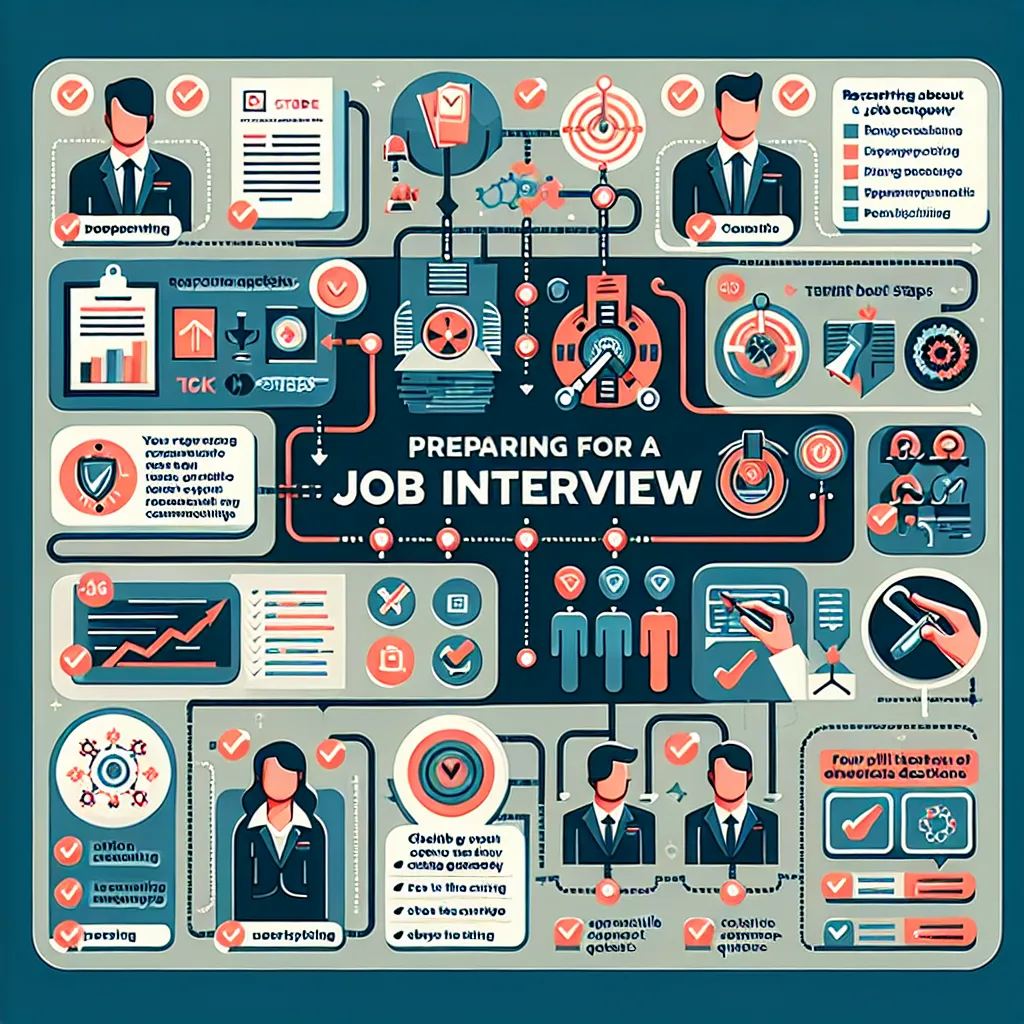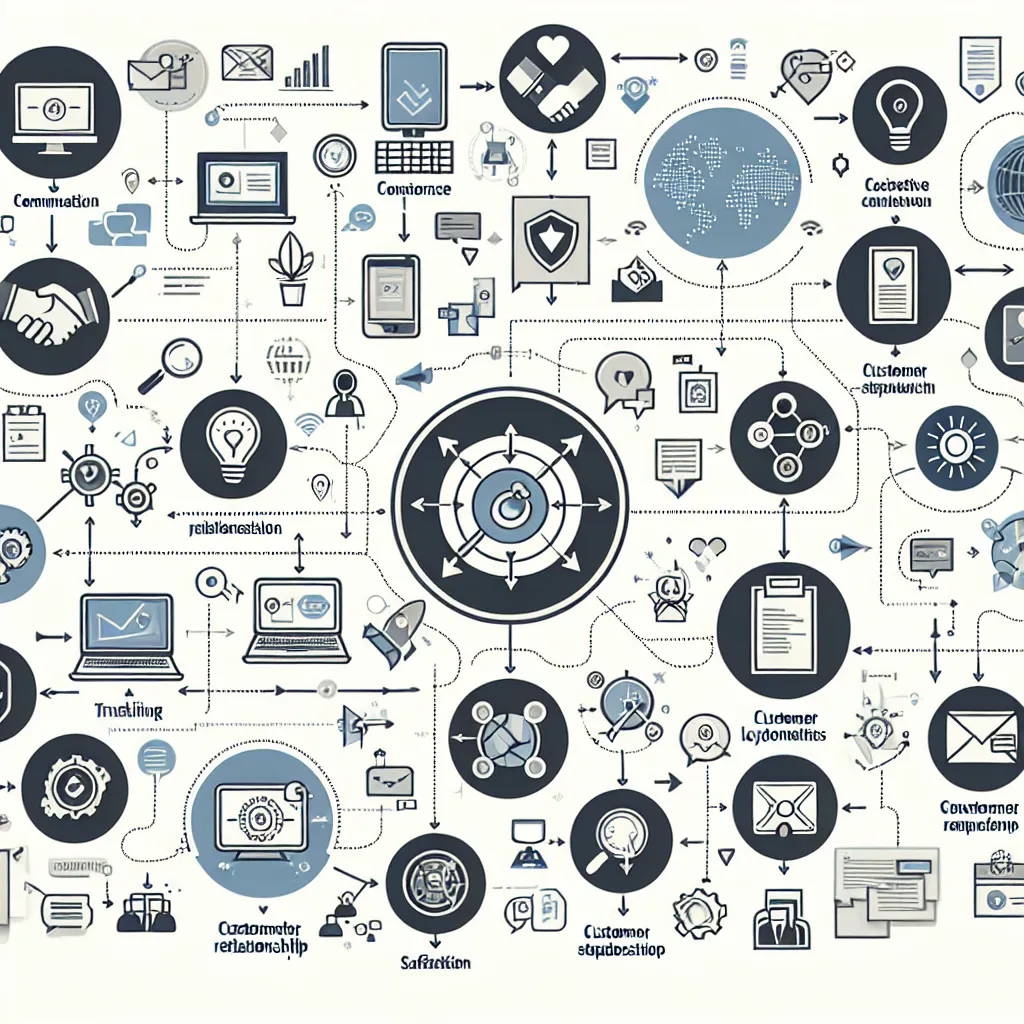Are you preparing for an important job interview? Whether you’re a fresh graduate or an experienced professional, avoiding common interview mistakes is crucial to make a lasting positive impression. In this comprehensive guide, we’ll explore the most frequent errors candidates make and provide valuable tips on how to sidestep them, ensuring you present your best self during the interview process.
Understanding the Importance of Interview Preparation
Before we delve into specific mistakes, it’s essential to recognize why proper interview preparation is vital. Interviews are your opportunity to showcase your skills, experience, and personality to potential employers. By avoiding common pitfalls, you significantly increase your chances of landing the job you desire.
 Interview preparation essentials
Interview preparation essentials
The Employer’s Perspective
When conducting interviews, employers are looking for candidates who not only possess the required skills but also demonstrate professionalism, enthusiasm, and cultural fit. Understanding their perspective can help you tailor your responses and behavior accordingly.
Common Interview Mistakes and How to Avoid Them
1. Lack of Research
One of the most critical mistakes candidates make is failing to research the company and position they’re applying for thoroughly.
How to avoid it:
- Spend time exploring the company’s website, recent news, and social media presence.
- Understand the company’s mission, values, and culture.
- Research the specific role you’re applying for and how it fits into the organization.
Example:
Instead of saying, “I don’t know much about your company,” try: “I was impressed by your recent sustainability initiative and would love to learn more about how it’s impacting your operations.”
2. Poor Body Language
Non-verbal communication plays a significant role in how you’re perceived during an interview.
How to avoid it:
- Maintain good posture and eye contact.
- Offer a firm handshake (when appropriate).
- Avoid fidgeting or crossing your arms.
Example:
Practice your body language in front of a mirror or with a friend to ensure you appear confident and engaged.
3. Arriving Late or Too Early
Punctuality is crucial in making a good first impression.
How to avoid it:
- Plan your route in advance and account for potential delays.
- Aim to arrive 10-15 minutes early.
- If you’re running late due to unforeseen circumstances, call ahead to inform the interviewer.
Example:
If your interview is at 2 PM, plan to arrive at the location by 1:45 PM at the latest.
4. Dressing Inappropriately
Your attire should match or slightly exceed the company’s dress code.
How to avoid it:
- Research the company culture to gauge appropriate attire.
- When in doubt, err on the side of being more formal.
- Ensure your clothes are clean, pressed, and professional.
Example:
For a tech startup, business casual might be appropriate, while a law firm may require more formal attire.
5. Speaking Negatively About Previous Employers
Badmouthing former employers or colleagues is a major red flag for interviewers.
How to avoid it:
- Focus on positive experiences and lessons learned from previous roles.
- If asked about challenges, frame your response in terms of growth and problem-solving.
Example:
Instead of saying, “My last boss was terrible,” try: “While I faced some challenges in my previous role, it taught me valuable lessons about adaptability and communication.”
6. Failing to Ask Questions
Not having questions for the interviewer can signal a lack of interest or preparation.
How to avoid it:
- Prepare a list of thoughtful questions about the role, company, and team.
- Ask about growth opportunities and the company’s future plans.
Example:
“Can you tell me more about the team I’d be working with and how success is measured in this role?”
7. Oversharing Personal Information
While it’s important to build rapport, sharing too much personal information can be unprofessional.
How to avoid it:
- Keep your responses focused on your professional experience and skills.
- Share personal anecdotes only if they’re directly relevant to the job or demonstrate a key skill.
Example:
Instead of discussing your personal life at length, focus on how your experiences have prepared you for the role.
8. Not Preparing for Common Questions
Being caught off guard by standard interview questions can undermine your confidence.
How to avoid it:
- Practice answering common questions like “Tell me about yourself” and “What are your greatest strengths and weaknesses?”
- Use the STAR method (Situation, Task, Action, Result) to structure your responses to behavioral questions.
Example:
When asked about a challenge you’ve overcome, prepare a specific example that highlights your problem-solving skills and resilience.
9. Forgetting to Follow Up
Failing to send a thank-you note or email after the interview is a missed opportunity to reinforce your interest.
How to avoid it:
- Send a personalized thank-you email within 24 hours of the interview.
- Reiterate your interest in the position and briefly mention a key point from your conversation.
Example:
“Thank you for taking the time to meet with me yesterday. I enjoyed learning more about the innovative projects your team is working on and am excited about the possibility of contributing my skills to your organization.”
Handling Unexpected Questions
Even with thorough preparation, you may encounter questions you’re not prepared for. Here are some tips for handling these situations:
- Take a moment to gather your thoughts before responding.
- If you’re unsure, ask for clarification.
- Be honest if you don’t know the answer, but express your willingness to learn.
- Relate the question to your experience or skills when possible.
Example:
If asked about a technology you’re unfamiliar with, you could say: “While I haven’t worked directly with that technology, I have experience with similar tools and am confident in my ability to quickly learn and adapt to new systems.”
Follow-up Questions and Sample Answers
Here are some common follow-up questions you might encounter, along with sample answers:
-
Q: How do you handle stress and pressure?
A: “I thrive under pressure by prioritizing tasks, maintaining a positive attitude, and taking short breaks to recharge when needed. In my previous role, I successfully managed multiple tight deadlines by implementing a detailed project timeline and collaborating effectively with my team.” -
Q: Where do you see yourself in five years?
A: “In five years, I aim to have deepened my expertise in [relevant field], taken on leadership responsibilities, and contributed significantly to the company’s growth. I’m excited about the potential for professional development within this role and organization.” -
Q: How do you stay updated with industry trends?
A: “I regularly read industry publications, attend webinars and conferences, and participate in online forums. I also network with colleagues and maintain certifications to ensure my skills remain current and relevant.” -
Q: Can you describe a time when you had to adapt to a significant change at work?
A: “In my previous role, our company underwent a major restructuring. I embraced the change by actively seeking information about new processes, volunteering for cross-functional projects, and helping colleagues adjust to the new structure. This experience enhanced my adaptability and change management skills.” -
Q: How do you handle conflicts with coworkers?
A: “I believe in addressing conflicts directly and professionally. I focus on active listening, seeking to understand the other person’s perspective, and collaborating to find a mutually beneficial solution. In one instance, I resolved a disagreement with a colleague by scheduling a private meeting where we openly discussed our concerns and developed a compromise that improved our workflow.”
Conclusion
Avoiding common interview mistakes is crucial for making a positive impression and increasing your chances of landing the job. By thoroughly preparing, presenting yourself professionally, and demonstrating genuine interest in the role and company, you’ll set yourself apart from other candidates. Remember to stay calm, be authentic, and showcase your unique value proposition throughout the interview process.
For more tips on acing your interview, check out our guide on how to prepare for a graduate interview or learn how to handle salary discussions in an interview. Good luck with your upcoming interviews!




